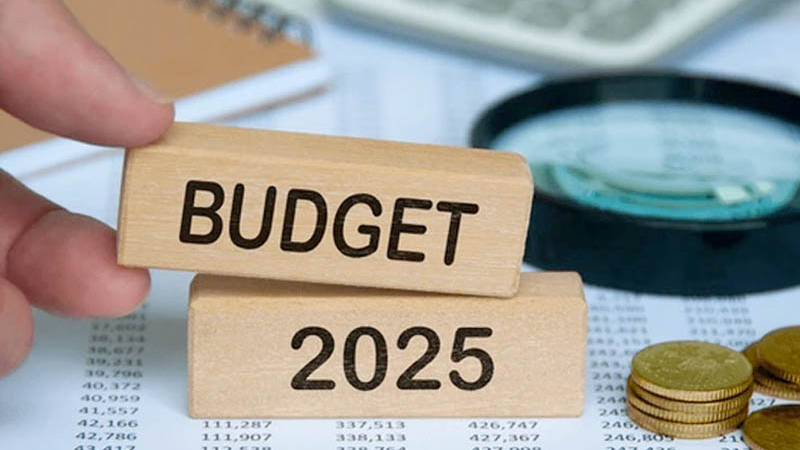The Ceylon Chamber of Commerce commends the Government for maintaining policy consistency by retaining the existing tax framework and avoiding ad-hoc tax measures to match the expenditure proposals. Adhering to the Public Financial Management Act, which caps primary expenditure at 13% of GDP, is a positive step toward rebuilding investor-confidence and strengthening Sri Lanka’s global credit standing. Ensuring tax stability during the year and simplifying compliance will be crucial for fostering a competitive business environment.
The Chamber welcomed the bold proposals in the Budget that align with its recommendations, Sri Lanka Economic Summit discussions and Vision 2030 goals. The 2025 Budget focuses on stability, governance, public relief, tackling corruption, and driving inclusive growth. The Budget emphasises infrastructure expansion through Public-Private Partnerships (PPPs) and digital economy initiatives, providing a strong foundation for transformation.
Customs Ordinance
The Chamber appreciates the Government’s recognition of the need to reform the Customs Ordinance and the implementation of the National Single Window, both crucial for enhancing trade facilitation and improving the ease of doing business.
We also acknowledge the planned implementation of the Economic Transformation Act with amendments and the introduction of legislation on Public-Private Partnerships (PPPs). Timely execution of these reforms will create a more conducive environment for private sector investment in key sectors such as ports, tourism, and infrastructure, as highlighted in the budget speech.
These bold reforms require time-bound implementation to translate the Budget’s vision into a reality that will be felt by the public. For example, projects such as the National Single Window which has been a request from the private sector for over two decades require commitment by the Government on the implementation plan.
The Chamber welcomes the plan to establish a holding company for SOEs, aligning with global best practices to improve governance, financial discipline, and efficiency. Its success will depend on clear timelines, independent oversight, and transparency.
Digitalisation and e-governance
The focus on digitalisation and e-governance is also a positive step, with initiatives such as the Unique Digital ID and the setup of an Apex Digital Economy Authority to reduce bureaucracy and enhance transparency.
The transition from the current SVAT system to a risk-based refund system requires careful execution, including stress-tested pilot programmes to ensure a robust and efficient refund process.
The changes to the minimum wage for private sector should be carried out in a consultative process and align with business sustainability and broader labour reforms that advocate for higher women’s economic participation and flexible work.
The Budget prioritises investment-driven growth but needs stronger support for MSMEs, vital for jobs and resilience. While Rs. 254 billion is allocated for agriculture, a clear strategy for modernisation, value chains, and climate resilience, is crucial. Policies on sustainable farming, irrigation, and private-sector agro-processing, must be strengthened to counter climate change impacts.
Investment-led growth
The Government’s emphasis on investment-led growth, trade, digital transformation, and public sector reform, align with the Ceylon Chamber’s recommendations.
While the 2025 budget effectively addresses fiscal consolidation, investment facilitation, and governance, its success depends on efficient time-bound implementation, policy stability, and stakeholder collaboration. The Chamber remains committed to working with the Government to refine and execute these policies, ensuring a resilient, inclusive, and globally competitive economy.
At the post Budget discussion organised by the National Chamber of Commerce of Sri Lanka, Principal Tax and Regulatory KPMG Sri Lanka, Hasitha Radella said, “As Sri Lanka continues its recovery, budget is focused on several taxation reforms with sustained improvements in fiscal management will be key to maintaining growth momentum for the country and it discussed about positive aspects of the proposals such as ease of paying taxes and Government expectations to enable the ease of doing business mainly through the digitalisation of public services, however VAT implications on the digital services are yet to be further clarified” .
Commissioner Tax Policy and legislation, Inland Revenue Department, Iyesha Asanthi said if any eligible exporter who exports more than 50 percent of total supplies is willing to get VAT Refunds under new risk-based refund system he can be included to the pilot project…Current VAT threshold is Rs. 15 million per quarter and Rs. 60 million per year at the standard rate 18%.Due to current situation of the country the budget proposals of 2025 doesn’t include tax exemptions or concessions, however the budget proposals made to amend individuals’ tax rates by increasing tax relief from Rs1.2 million to 1.8 million and by relaxing tax brackets the individuals including employees will benefit”.
CFO of Commercial Bank PLC, Nandika Buddhipala said, “We appreciate the Government’s efforts to come up with the 2025 Budget with unprecedented constraints, inter alia, the Public Finance Management Act and the IMF Debt Sustainability Framework, however, the Government is making sure to align with them.
It is extremely important to be cognisant of the persisting debt servicing and interest cost burden and our concrete plans with regard to creating conduce environment for export-oriented and FDI conducive economy with decreasing emphasis on non-tradable orientation.”




